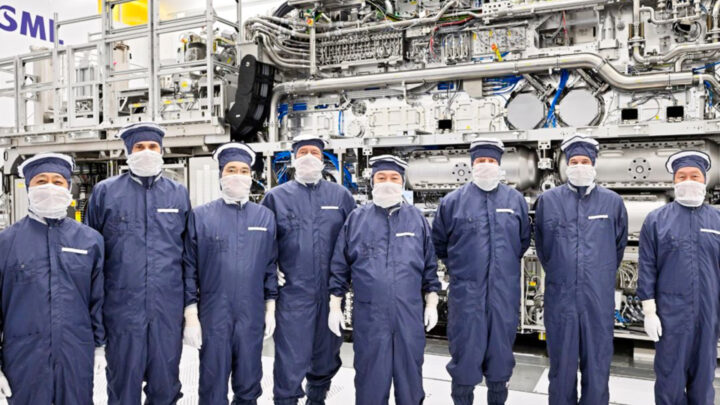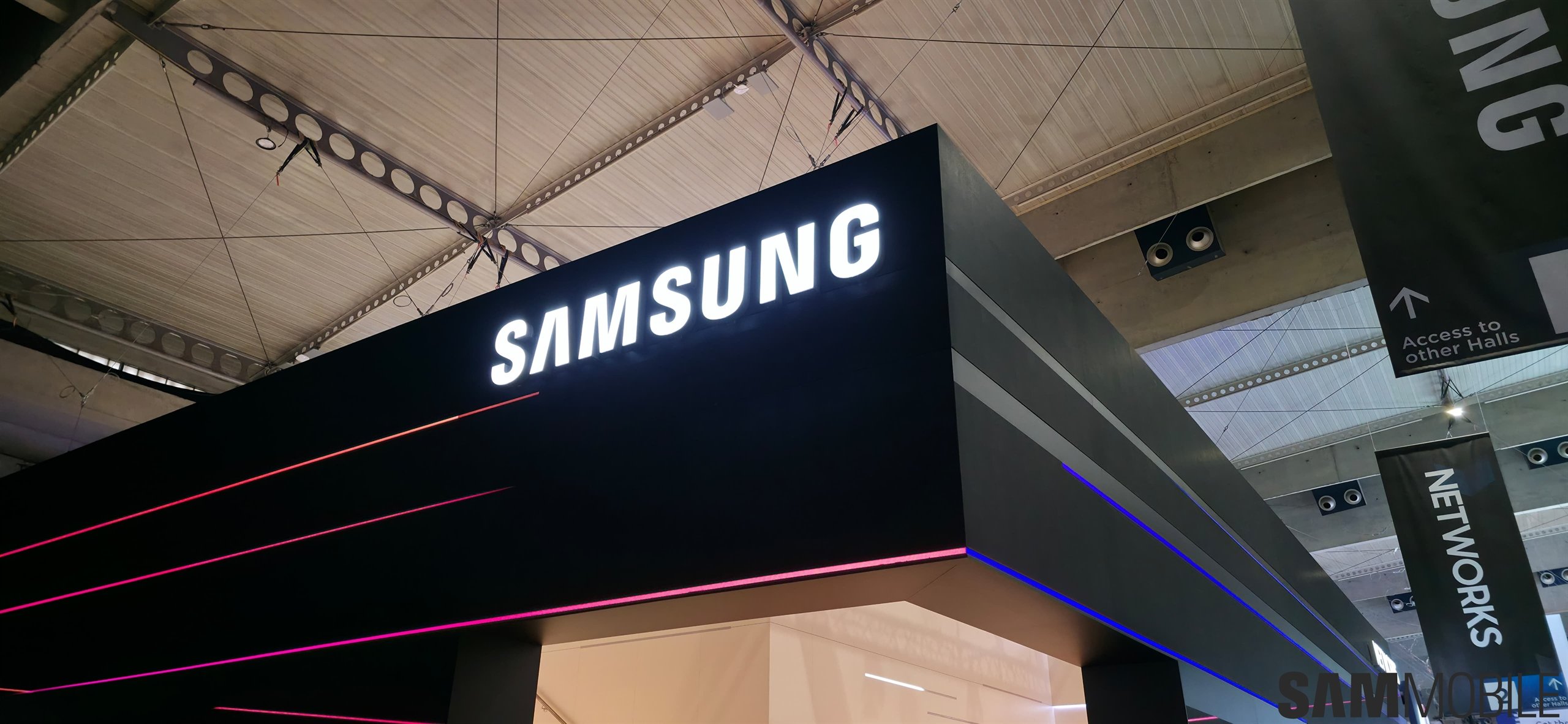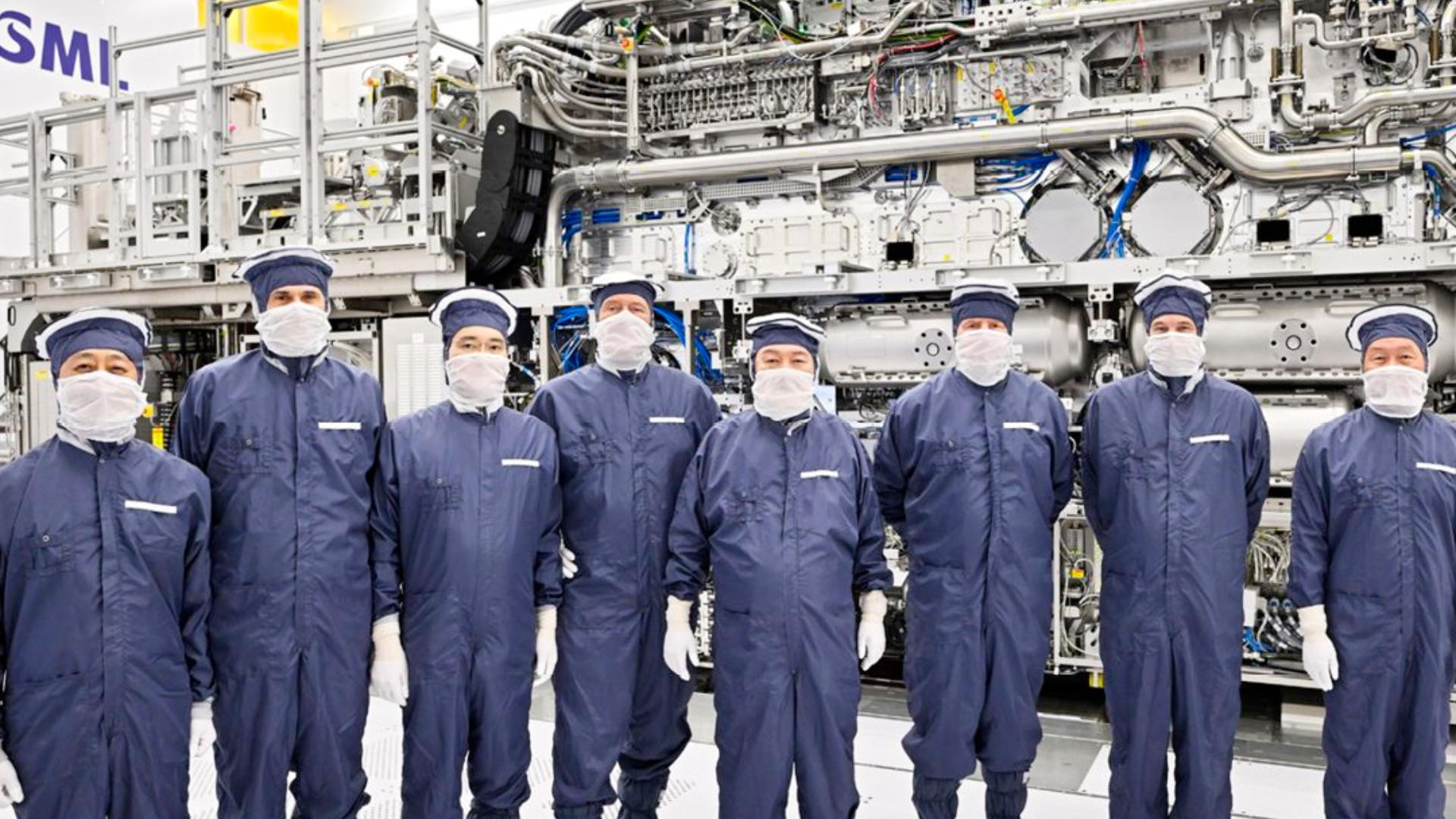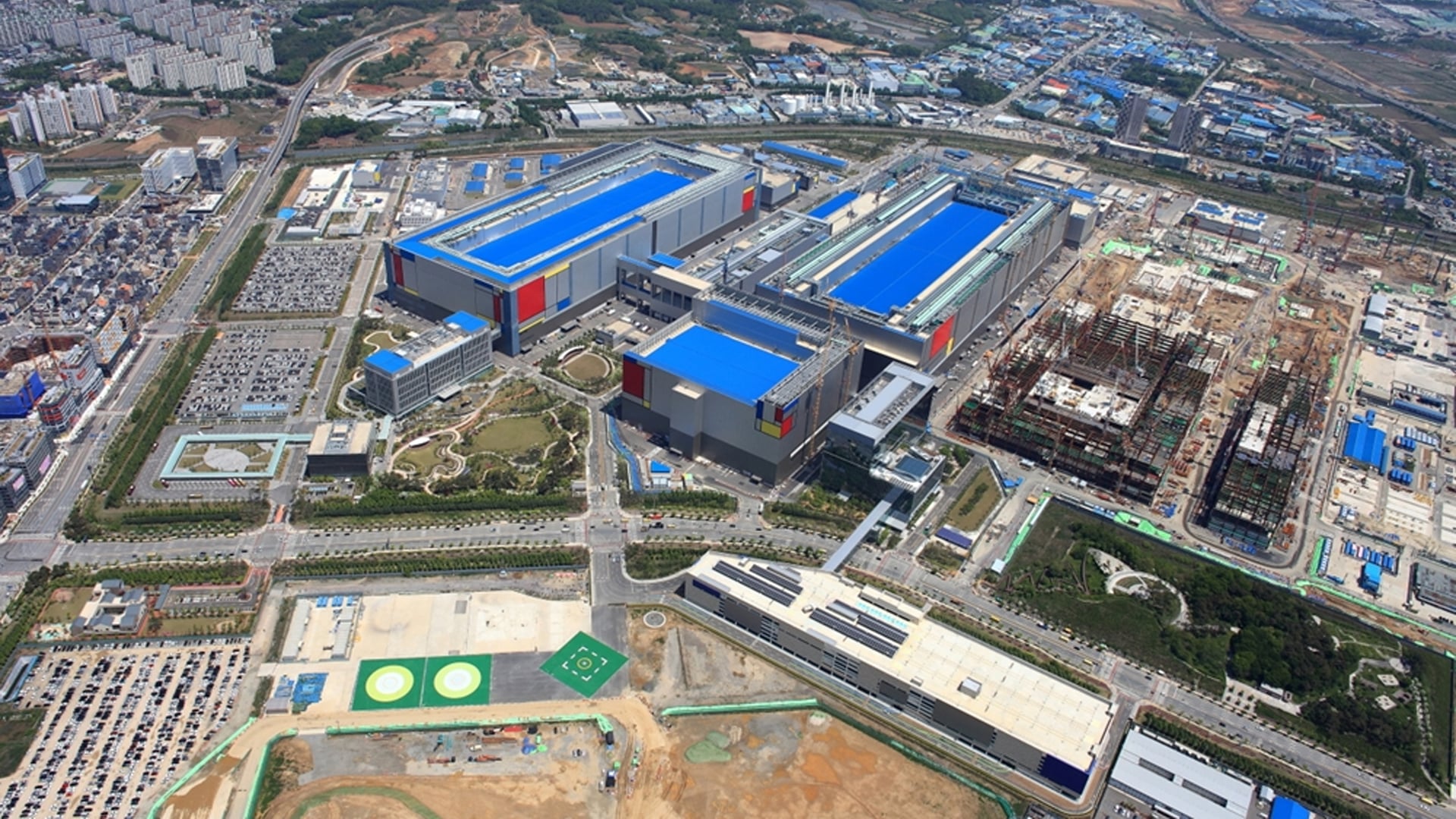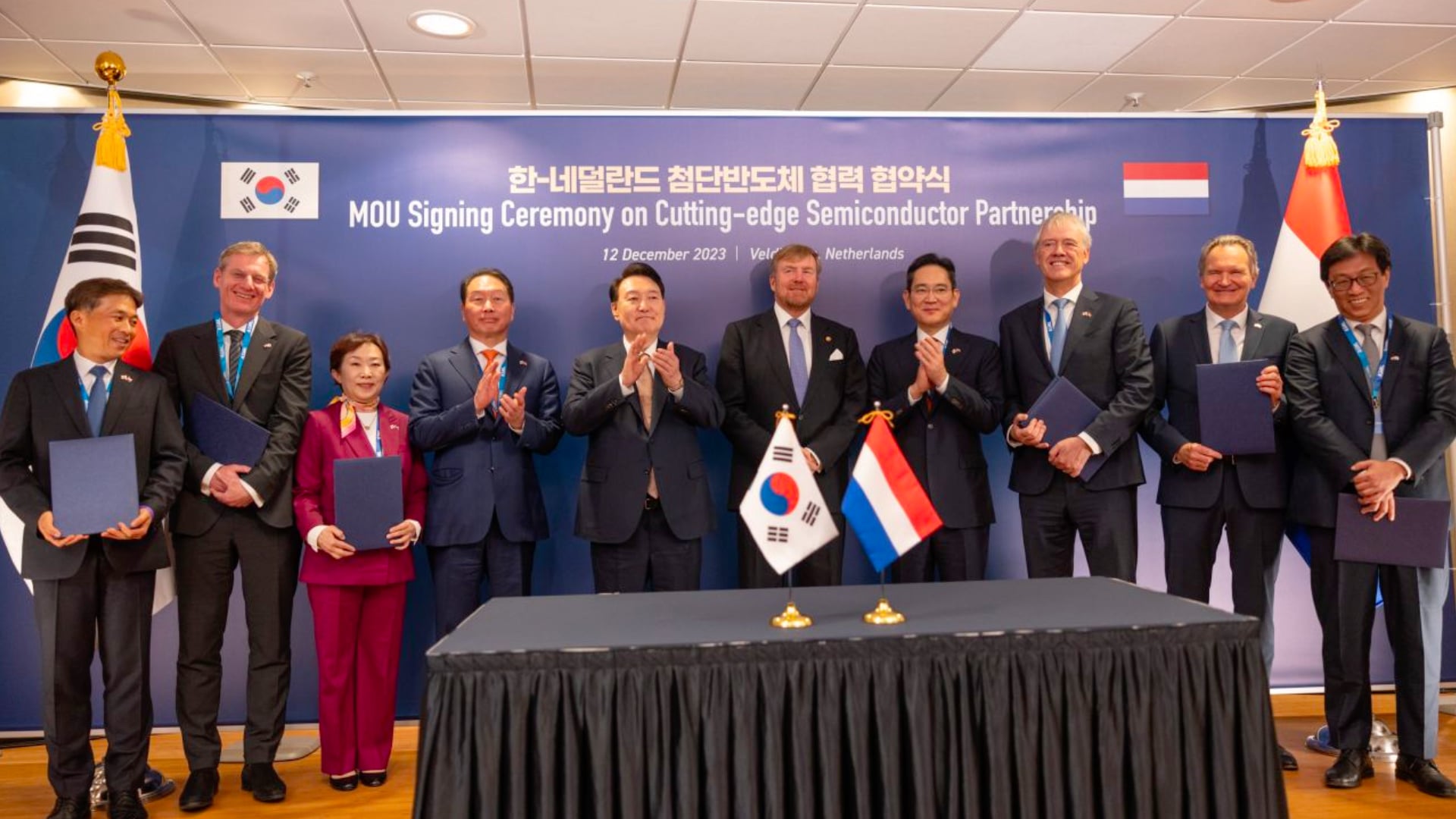
ASML and Samsung will invest in a chip research plant that will develop new technologies
Yoon Suk Yeol has become the first foreign leader to visit ASML's coveted ‘clean room' during his visit to the Netherlands. ASML and Samsung aim to forge a chip alliance to move forward in the highly competitive and extremely complex semiconductor chip segment. If you don't know already, Samsung is the second biggest semiconductor chip manufacturer in the world, while ASML is the world's best maker of advanced equipment that helps make those semiconductor chips. ASML's chip equipment is used by almost every big chip maker, including Samsung Foundry and TSMC.
ASML and Samsung have agreed to keep investing in the chip research facility that will develop cutting-edge semiconductor chip technologies using next-generation EUV (Extreme Ultraviolet) machines. Yoon said ASML's innovative technologies have been a major driver of the industrial revolution, pushing the boundaries of AI and 5G communications. In an interview with AFP, Yoon said as competition with China has heated up over the past few years, it is strategically important to visit the Netherlands. Yoon was joined by heads of Samsung and SK Hynix. The South Korean President said that the two countries want to build a chip alliance, which would include businesses, governments, and research universities. They are expected to sign more agreements during Yoon's visit.
The US and the Netherlands have placed restrictions on China and aren't allowing advanced chip-making equipment to be sold to Chinese firms, fearing that they could use them to make warfare equipment. Since then, the Chinese government has reportedly invested a lot of money in developing indigenous chip manufacturing technologies. Since the ban, Samsung has been affected as one of its biggest factories that makes DRAM is in China, and it has been having trouble importing new chip-making equipment to that chip plant.












